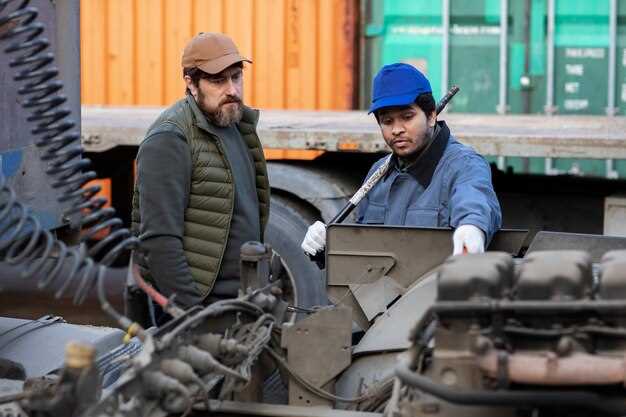
Towing heavy loads is not just about having a strong vehicle; it’s also about optimizing its performance to ensure safety and efficiency. Whether you’re hauling a trailer, boat, or any other heavy equipment, enhancing your vehicle’s towing capabilities can make a significant difference. With the right performance modifications, you can transform your truck or SUV into a powerful towing machine that handles your demands with ease.
In this article, we will explore various performance modifications that can effectively boost your towing power. From upgrading the engine and transmission to enhancing suspension systems, each mod plays a vital role in improving your vehicle’s performance. These upgrades not only maximize your towing capacity but also contribute to better handling and stability on the road.
Understanding the intricacies of towing power is essential for enthusiasts and casual users alike. Performance mods are not merely about adding horsepower; they also involve improving torque, increasing cooling capacity, and ensuring durability. We will delve into each aspect to provide you with a comprehensive guide on how to maximize your vehicle’s towing potential.
Optimizing Engine Performance for Increased Towing Capacity
To enhance your vehicle’s towing capacity, optimizing engine performance is crucial. A well-tuned engine will not only improve power output but also enhance efficiency, making towing easier and safer.
One of the primary methods to boost engine performance is upgrading the intake system. High-performance air filters or cold air intakes increase airflow into the engine, resulting in better combustion and power. A more efficient intake allows the engine to breathe better, which is essential when carrying heavy loads.
Another effective modification is installing a performance exhaust system. By reducing back pressure and allowing exhaust gases to exit more freely, these systems improve engine efficiency. Enhanced exhaust flow contributes to better acceleration and overall performance, which is vital during towing scenarios.
Re-mapping the engine’s computer (ECU tuning) is another powerful option. This involves recalibrating the engine parameters, such as fuel delivery and ignition timing, to optimize for increased torque and horsepower. By fine-tuning these settings, you can achieve a significant increase in towing capabilities, especially when hauling heavy trailers.
Upgrading the turbocharger or supercharger, if applicable, can provide a substantial boost in engine power. Forced induction systems allow for greater amounts of air and fuel to enter the engine, resulting in increased power output. This additional power translates into better towing performance, especially in demanding conditions like steep inclines.
Finally, ensuring your vehicle has adequate cooling is essential when modifying for increased performance. Upgrading the radiator or adding an auxiliary transmission cooler can prevent overheating, ensuring the engine maintains optimal performance during heavy towing.
By strategically implementing these performance modifications, you can optimize your engine’s capabilities and significantly enhance its towing capacity, making it more suited for demanding hauling tasks.
Selecting the Right Gear Ratio for Towing Applications

Choosing the appropriate gear ratio is crucial for optimizing towing performance in vehicles. The gear ratio determines how many times the driveshaft turns for each turn of the wheels, directly influencing torque and engine efficiency. For towing applications, a lower gear ratio (numerically higher) is typically preferred as it provides increased torque, facilitating the movement of heavier loads.
Understanding Gear Ratios: Gear ratios are expressed as a ratio of the number of teeth on the driven gear to the number of teeth on the driving gear. For example, a 3.73:1 ratio means the driveshaft turns 3.73 times for every one revolution of the wheel. Lower ratios, such as 4.10:1 or 4.56:1, translate into higher torque, which is beneficial for towing, especially on inclines.
Considerations for Towing: When selecting a gear ratio for towing, consider the type of trailer, load weight, and the terrain you will encounter. Heavier loads and steeper grades require lower gear ratios to maintain performance without overworking the engine. Conversely, if you primarily drive on flat highways with lighter loads, a higher gear ratio will enhance fuel efficiency and overall driving comfort.
Fuel Economy vs. Torque: It’s essential to balance torque with fuel efficiency. A lower gear ratio will improve towing capability but may decrease fuel economy when not towing. Conversely, a higher gear ratio can improve fuel efficiency but may struggle under heavy loads. Evaluate your typical use case to determine the best compromise.
Re-gearing: If you modify your vehicle for enhanced towing power, re-gearing might be necessary. Upgrading to a lower gear ratio can maximize performance but may require adjustments to the transmission and speedometer calibration. It’s advisable to consult a professional to ensure compatibility with your vehicle’s specifications.
Conclusion: Selecting the right gear ratio for your towing needs is a critical step in enhancing performance. Assess your specific towing requirements, consider the benefits and trade-offs of different ratios, and make an informed decision that aligns with your vehicle’s capability and your towing habits.
Upgrading Your Cooling System to Handle Heavy Loads

When you tow heavy loads, your vehicle’s engine and transmission work harder than usual, generating excess heat. An upgraded cooling system is essential to prevent overheating, maintain optimal performance, and extend the lifespan of your vehicle’s components. Here are some effective upgrades to consider:
- High-Performance Radiator:
A larger, high-capacity radiator can improve heat dissipation. Look for models with enhanced airflow features to optimize cooling performance.
- Upgraded Water Pump:
An upgraded water pump can enhance the circulation of coolant throughout the engine, ensuring that hot spots are effectively managed.
- Aftermarket Cooling Fans:
Installing high-flow electric cooling fans can increase airflow to the radiator and engine bay, which helps maintain lower temperatures during heavy towing.
- Cooling System Additives:
Consider using specialized coolant additives that improve heat transfer and prevent boiling, which can be beneficial during demanding towing conditions.
In addition to these upgrades, maintaining the existing cooling system is crucial:
- Regularly check and replace coolant to prevent corrosion and ensure efficient heat transfer.
- Inspect hoses and connections for leaks or wear that could compromise the cooling system’s effectiveness.
- Ensure the thermostat is functioning correctly; a malfunctioning thermostat can lead to overheating.
By upgrading your cooling system and keeping it well-maintained, you’ll effectively manage the added stress of towing heavy loads, ensuring reliable performance and longevity for your vehicle.

